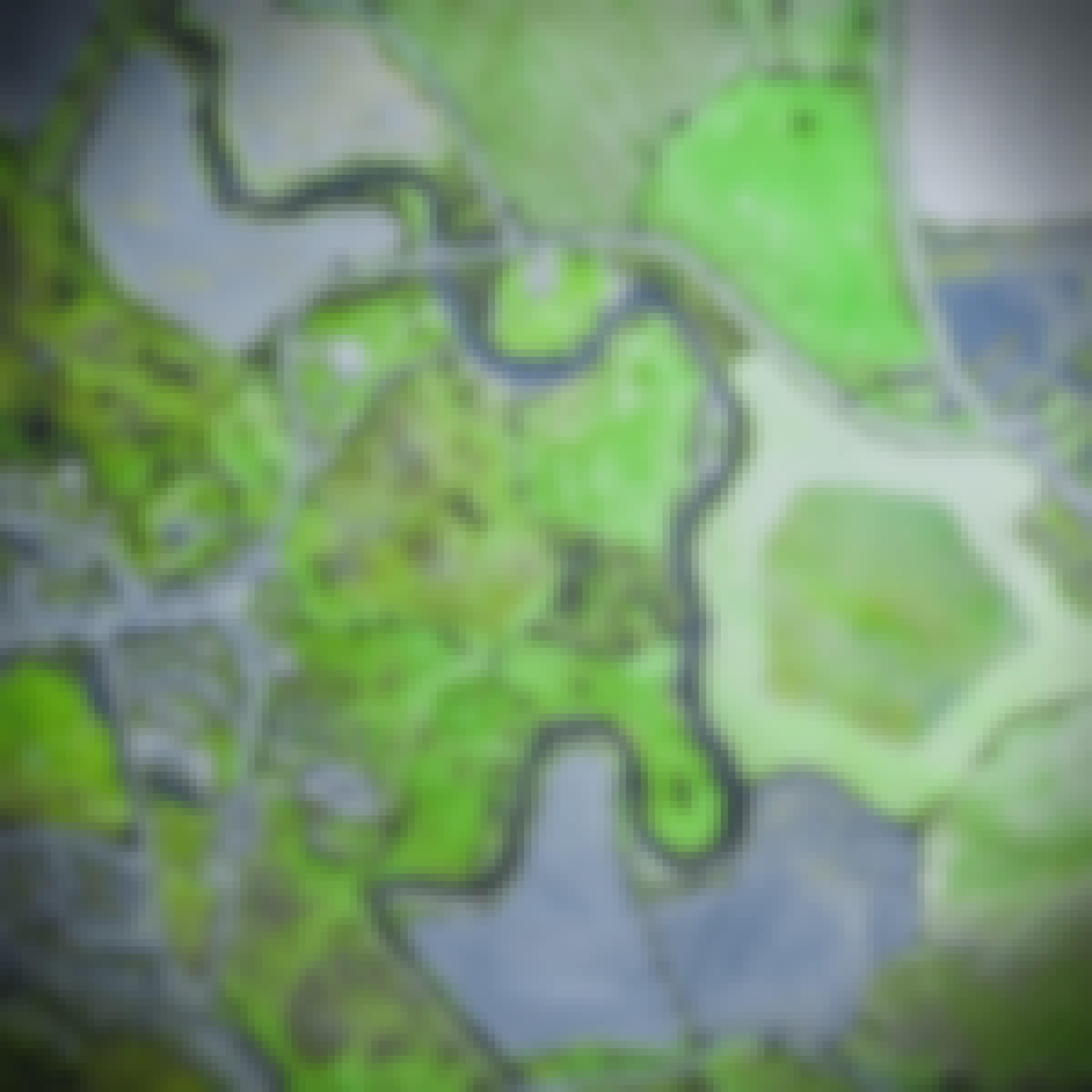Filter by
SubjectRequired
LanguageRequired
The language used throughout the course, in both instruction and assessments.
Learning ProductRequired
LevelRequired
DurationRequired
SkillsRequired
SubtitlesRequired
EducatorRequired
Explore the Nature Course Catalog
 Status: Preview
Status: PreviewUniversity of Western Australia
Skills you'll gain: Land Management, Economics, Water Resources, Natural Resource Management, Environmental Resource Management, Environmental Policy, Supply And Demand, Cost Benefit Analysis, Policy Analysis, Climate Change Adaptation, Market Dynamics
 Status: Free Trial
Status: Free TrialRice University
Skills you'll gain: Biology, Environment, Microbiology, Environmental Science, Life Sciences, Environmental Issue, Sustainable Development, Natural Resource Management, Physiology, Molecular Biology, Taxonomy, Cell Biology, Anatomy, Climate Change Adaptation, Estimation, Mathematical Modeling, Scientific Methods, Climate Change Mitigation, Experimentation, Case Studies
 Status: Preview
Status: PreviewTel Aviv University
Skills you'll gain: Scientific Methods, Biology, Research, Biochemistry, Life Sciences, Psychology, Molecular Biology, Environment, Physiology, Cell Biology
 Status: Free Trial
Status: Free TrialUniversity of California, Irvine
Skills you'll gain: Conflict Management, Active Listening, Intercultural Competence, Cultural Diversity, Social Skills, Communication Strategies, Interpersonal Communications, De-escalation Techniques, Verbal Communication Skills, Cultural Sensitivity, Mediation, Case Studies, Stakeholder Management, Teamwork, Cooperation, Collaboration, Communication, Portfolio Management, Leadership, Organizational Effectiveness
 Status: Free Trial
Status: Free TrialUniversity of Maryland, College Park
Skills you'll gain: Intellectual Property, Commercial Laws, Risk Management, Business Risk Management, Entrepreneurship, Entrepreneurial Finance, Vendor Contracts, Legal Risk, Law, Regulation, and Compliance, Contract Negotiation, Contract Management, Contract Review, Business, Labor Law, Business Management, New Business Development, Business Strategy, Innovation, Regulation and Legal Compliance, Legal Strategy
 Status: Free Trial
Status: Free TrialUniversity of Colorado System
Skills you'll gain: Splinting, Patient Evaluation, Trauma Care, Medical Emergency, Sanitation, Emergency Medicine, Neurology, First Aid, Patient Positioning, Patient Transport, Wound Care, Emergency Medical Services, Patient Treatment, Safety Assurance, Clinical Assessment, Environment Health And Safety, Triage, Acute Care, Emergency Response, Vital Signs
What brings you to Coursera today?
 Status: NewStatus: Preview
Status: NewStatus: PreviewJordan University of Science and Technology
Skills you'll gain: Immunology, Public Health and Disease Prevention, Laboratory Testing, Diagnostic Tests, Public Health, Pathology, Infectious Diseases, Physiology, General Medicine, Internal Medicine, Hematology, Microbiology, Medical Terminology, Cell Biology, Oncology, Molecular Biology
 Status: Free Trial
Status: Free TrialQueen Mary University of London
Skills you'll gain: Qualitative Research, Research Methodologies, Surveys, Science and Research, Data Collection, Focus Group, Research, Market Research, Research Design, Sample Size Determination, Interviewing Skills, Probability & Statistics, Case Studies
 Status: Preview
Status: PreviewUniversity of Pennsylvania
Skills you'll gain: Ancient History, Art History, Liberal Arts, World History, Ethical Standards And Conduct, Anthropology, Sociology, Psychology
 Status: Free Trial
Status: Free TrialSkills you'll gain: Music, Media Production, Musical Composition, File Management, Editing
 Status: Preview
Status: PreviewUniversity of Geneva
Skills you'll gain: Sustainable Development, Geographic Information Systems, Environment, Environmental Resource Management, Natural Resource Management, Spatial Analysis, Sustainability Standards, Environmental Science, Environmental Policy, Hydrology, Economics, Governance, Stakeholder Engagement, Case Studies
 Status: Preview
Status: PreviewWesleyan University
Skills you'll gain: Psychiatry, Clinical Psychology, Mental Health Diseases and Disorders, Pharmacology, Psychiatric Assessments, Psychotherapy, Psychology, Mental Health Therapies, Patient Evaluation, Neurology, Scientific Methods, Magnetic Resonance Imaging, Medical History Documentation, Medical Imaging
Nature learners also search
In summary, here are 10 of our most popular nature courses
- Agriculture, Economics and Nature: University of Western Australia
- Introduction to Biology: Ecology, Evolution, & Biodiversity: Rice University
- Understanding Plants - Part I: What a Plant Knows: Tel Aviv University
- Conflict Management: University of California, Irvine
- Legal Aspects of Entrepreneurship: University of Maryland, College Park
- Wilderness First Aid: University of Colorado System
- Immunology for all: Jordan University of Science and Technology
- Research Methodologies: Queen Mary University of London
- Greek and Roman Mythology: University of Pennsylvania
- The Technology of Music Production: Berklee










